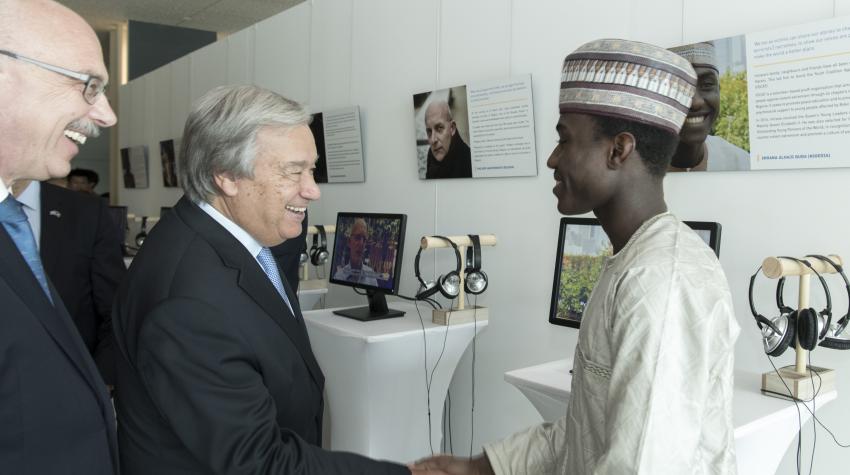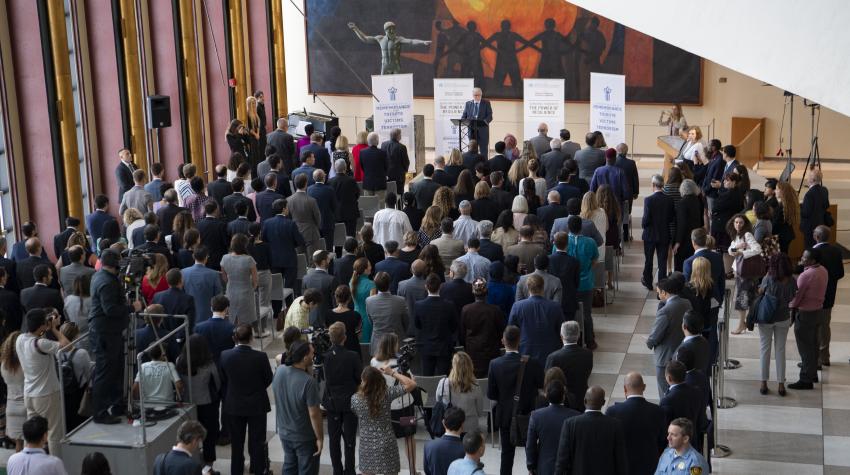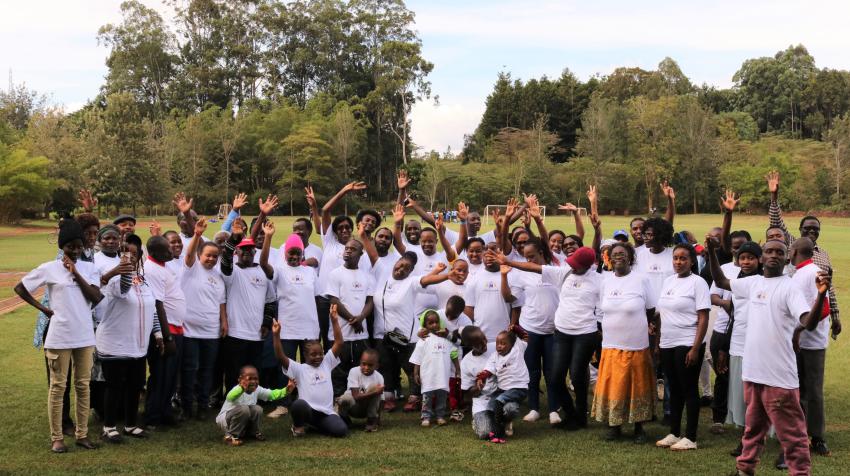19 August 2020
In December 2017, the United Nations General Assembly adopted a resolution proclaiming 21 August as the International Day of Remembrance of and Tribute to the Victims of Terrorism (A/RES/72/165). It was a momentous occasion for advocates of victims of terrorism and part of a series of developments at the international, regional and national level, which demonstrated that support to victims had finally moved beyond symbolic solidarity towards more action-focused initiatives to uphold their human rights and address their needs.
The International Day ensures that we pause every year to reflect, remember and reaffirm our commitment to supporting victims of terrorism, a group that all too often feels marginalized and overlooked. In the immediate aftermath of attacks, there is often an outpouring of grief, compassion and solidarity for victims, which may give the impression that their needs are being addressed. Unfortunately, this is not always the case. In today’s fast-paced news cycle, media attention on the victims quickly diminishes, with a greater focus on the perpetrator of the attack. This imbalance means many victims are left nameless, faceless and without a platform to seek justice, recognition and support.
Despite the good progress we have made in recent years in advocating for victims of terrorism, much work remains to be done by Member States to ensure victims’ needs and rights are adequately prioritized. Many victims receive emergency treatment, counselling and compensation in the immediate aftermath of an attack, but becoming a victim of terrorism has life-long consequences that can reverberate across generations. General Assembly resolution 73/305 of June 2019 calls on Member States to establish national assistance plans for victims that address their long-term relief and rehabilitation needs and take into account a gender perspective. My Office is looking at how we can operationalize this call by supporting Member States’ efforts to deliver real and sustainable improvements in addressing the long-term needs of victims and their families. For example, we are working with the United Nations Office on Drugs and Crime and the Inter-Parliamentary Union to develop model legal provisions to ensure that victims’ rights and needs are enshrined in national legal frameworks. This is an important step forward in our efforts to enable victims to participate in judicial processes, gain better access to basic medical (including psychosocial) services, and receive adequate compensation and reparations.
The new scourge of COVID-19 may dominate today’s headlines but global challenges such as terrorism continue to destroy lives and communities.
The COVID-19 crisis has added a new layer of complexity and concern for victims of terrorism. Many victims may find that the threats engendered by the pandemic can trigger traumatic reactions similar to those associated with a terrorist attack, including a shattering of their sense of safety and protection. At the same time, there are concerns that in understandably focusing on fighting the pandemic, Member States have diverted their attention and resources away from protecting, supporting, and remembering victims. This has had a detrimental impact on victims’ access to justice and the legal, financial, and psychosocial support available to them.

My Office continues to stand with victims of terrorism, particularly during this trying time, and we have called for tangible actions by Member States to ensure that victims’ rights and needs remain a priority. Nevertheless, we have heard from our partners, especially victims’ associations, that victims fear they are being forgotten and their voices cast aside. For this reason, the third commemoration of the International Day on 21 August 2020 will focus on honouring those who have lost their lives and remembering those who have survived. At a time when so many remembrance ceremonies and memorials have been cancelled or moved online, depriving victims of much-needed in-person support and comfort, the International Day will be an opportunity for the world to come together and stand in solidarity with all victims and survivors.
We have a moral duty and a responsibility to build on the progress made in recent years and increase our support to victims of terrorism, especially in times of crisis. At the international level, this progress can be seen in resolution 73/305, adopted last year, which calls for strengthened international cooperation to support victims of terrorism. It also recognizes the vital role that civil society organizations play in supporting the recovery of victims, which has unfortunately been disrupted by the pandemic as funding dries up and services are suspended or forced online. To ensure that victims are well-supported during and beyond the COVID-19 crisis, there needs to be decisive action at international and national levels, combining the resources and expertise of Member States, the private sector and civil society, including victims’ associations, human rights organizations and academia. The Group of Friends of Victims of Terrorism, an initiative of more than 40 Member State permanent missions to the United Nations in New York, and the establishment of a Civil Society Unit in my Office—the United Nations Office of Counter-Terrorism—are good examples of this strengthened collaboration.
The new scourge of COVID-19 may dominate today’s headlines but global challenges such as terrorism continue to destroy lives and communities. We owe it to every victim and survivor of terrorism to protect and promote their human rights, amplify their voices and uphold their dignity so they can heal, recover and rebuild their lives. Despite the many challenges we face during these uncertain times, supporting and remembering victims will always remain a top priority for my Office and for the whole United Nations. Only by acknowledging the tragic and devastating human impact of terrorism can we work towards the promotion of peace and a world without the scourge of terrorism.
The UN Chronicle is not an official record. It is privileged to host senior United Nations officials as well as distinguished contributors from outside the United Nations system whose views are not necessarily those of the United Nations. Similarly, the boundaries and names shown, and the designations used, in maps or articles do not necessarily imply endorsement or acceptance by the United Nations.




